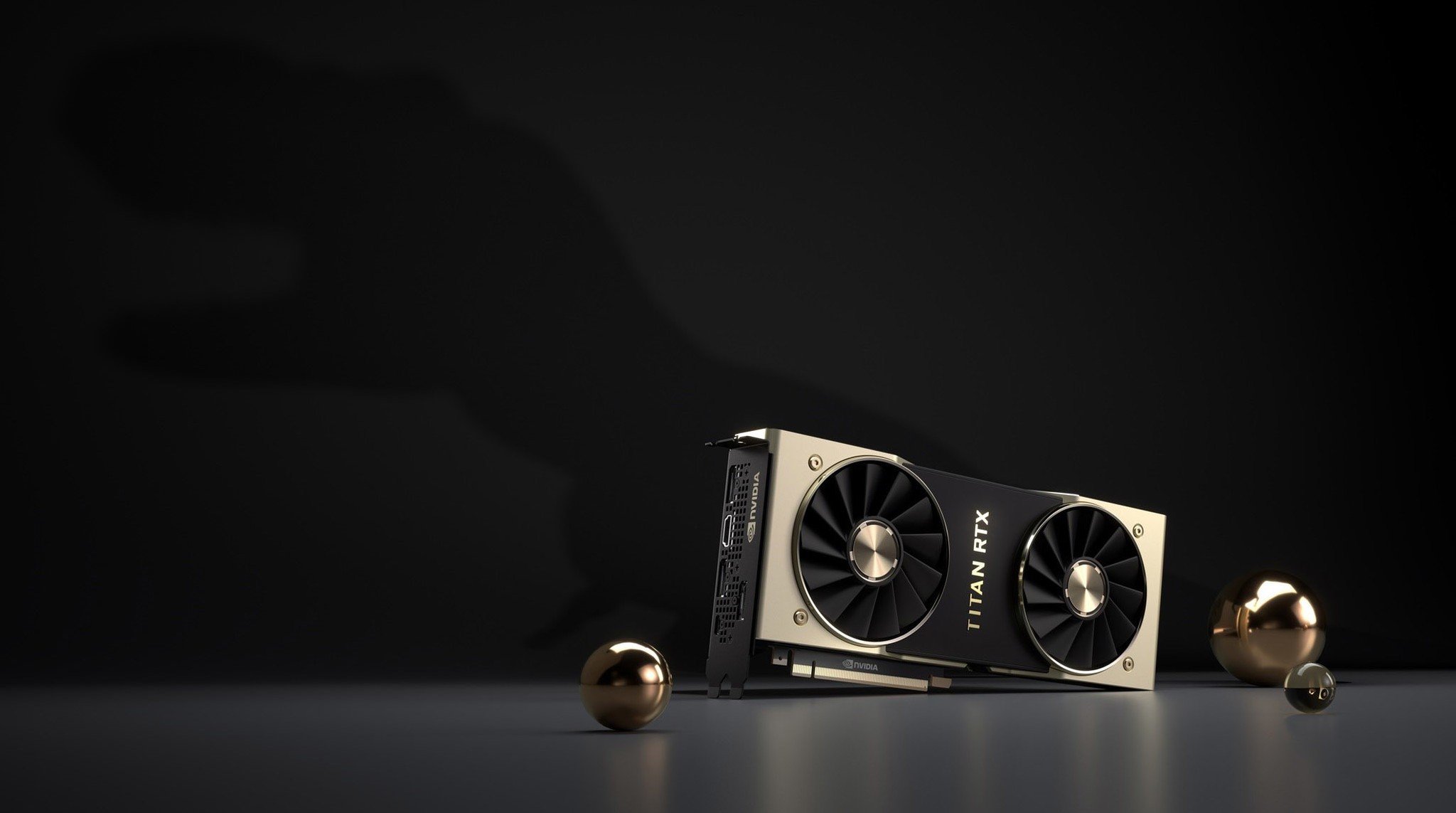NVIDIA's $2,499 Titan RTX is the most powerful desktop GPU yet
NVIDIA's beastly Titan RTX is going on sale later this month in the U.S. and Europe for a cool $2,499.

After launching the gaming-oriented RTX 2080 and 2080 Ti earlier this year, NVIDIA is now turning its attention to the AI and machine learning market with the Titan RTX. Like its RTX siblings that heavily inhabit our roundup of the best graphics cards, the Titan RTX is based on the Turing architecture, and features 576 multi-precision Tensor and 72 RT cores that provide up to a staggering 130 teraflops of deep learning performance.
NVIDIA is also touting 11 GigaRays per second of real-time ray tracing performance from the card, and it's no wonder that the vendor is calling the Titan RTX the most powerful desktop GPU in the market today. Other specs include 24GB of GDDR6 memory — twice as much as previous Titan models — that translates to a bandwidth of 672GB/s.
The Titan RTX is aimed at AI researchers, data scientists, and content creators, with NVIDIA claiming "breakthrough performance" from FP32, FP16, INT8 and INT4 operations that allows for faster training and inference of neural networks. Researchers will also be able to leverage NVLink to combine two Titan RTXs when working with large data sets. Of particular interest for data scientists will be the fact that the Titan RTX supports RAPIDS, the open-source libraries that integrate with popular data science workflows to boost machine learning use cases.
Finally, content creators will be glad to know that the Titan RTX will facilitate real-time 8K video recording. The card is set to go on sale later this month in the U.S. and Europe for $2,499, and while it's aimed at researchers and creative professionals, it'll inevitably make its way to high-end gaming rigs in due course of time.
Anyone interested in picking one up?
Get the Windows Central Newsletter
All the latest news, reviews, and guides for Windows and Xbox diehards.

Harish Jonnalagadda is a Senior Editor overseeing Asia for Android Central, Windows Central's sister site. When not reviewing phones, he's testing PC hardware, including video cards, motherboards, gaming accessories, and keyboards.
